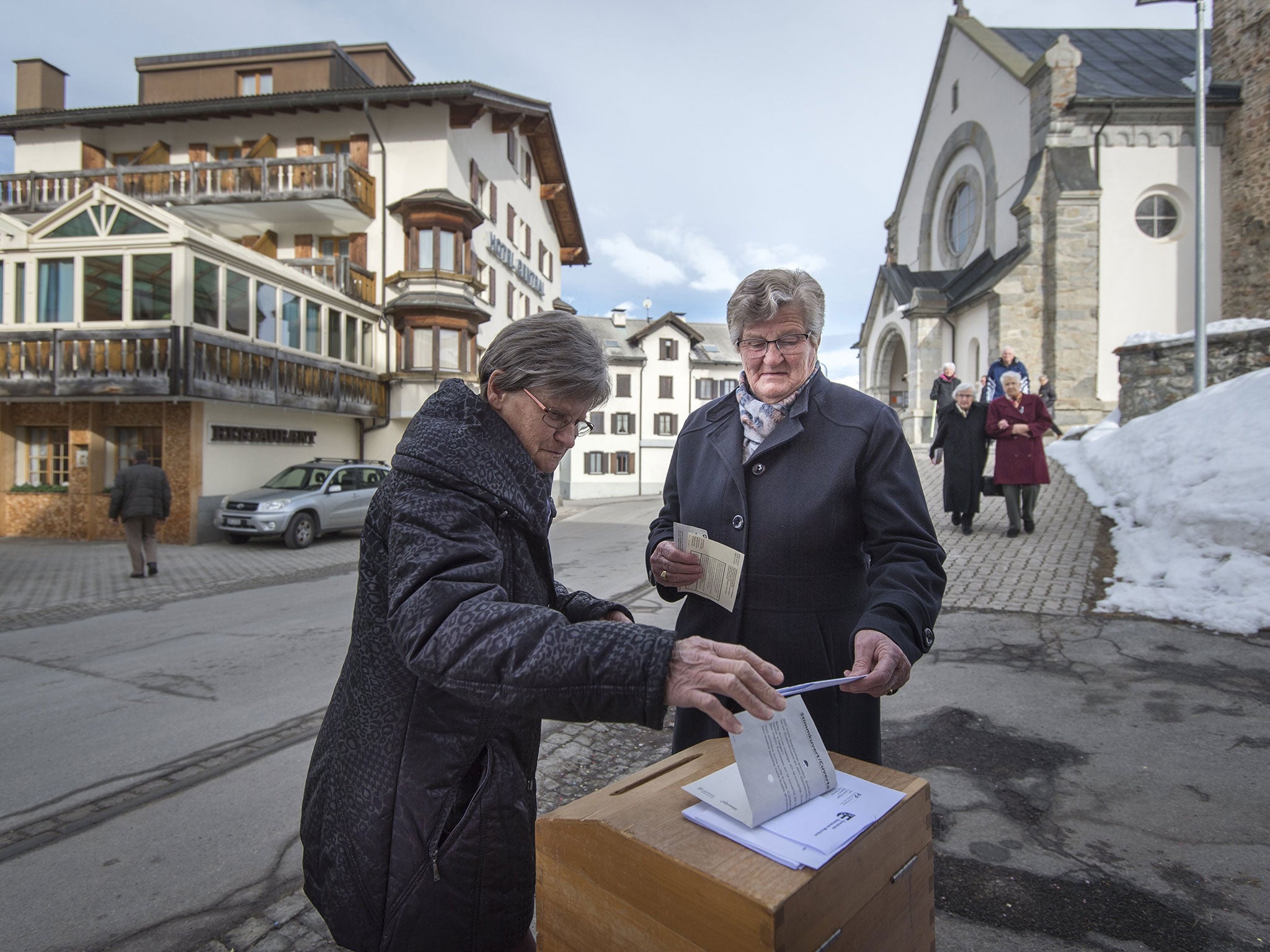Switzerland votes to relax immigration rules in defiance of anti-Muslim rhetoric
Early returns suggest the referendum result will make it easier for third-generation immigrants to become citizens

Your support helps us to tell the story
From reproductive rights to climate change to Big Tech, The Independent is on the ground when the story is developing. Whether it's investigating the financials of Elon Musk's pro-Trump PAC or producing our latest documentary, 'The A Word', which shines a light on the American women fighting for reproductive rights, we know how important it is to parse out the facts from the messaging.
At such a critical moment in US history, we need reporters on the ground. Your donation allows us to keep sending journalists to speak to both sides of the story.
The Independent is trusted by Americans across the entire political spectrum. And unlike many other quality news outlets, we choose not to lock Americans out of our reporting and analysis with paywalls. We believe quality journalism should be available to everyone, paid for by those who can afford it.
Your support makes all the difference.Swiss voters decided Sunday that they want to make it easier for “third-generation foreigners” to get Swiss citizenship. They rejected a complex tax reform initiative aimed at getting Switzerland in line with international standards.
The “simplified naturalisation of third-generation immigrants” measure passed in a national referendum with 60.4 per cent of the vote, Swiss broadcaster SRF reported. It simplifies applications for anyone under 25 whose parents and grandparents have lived in Switzerland for years.
The measure gives young people who qualify the same fast-track, simplified access to Swiss citizenship that foreign spouses of Swiss nationals often enjoy.
SRF reported that 59.1 per cent of voters rejected the tax reform referendum, which would have scrapped a two-track tax system that offers lower rates to foreign firms to lure investment.
Experts say the tax initiative's failure means that overall rates are likely to be set higher – which would be a disincentive to companies that bring in jobs and ultimately tax revenues.
Many domestic companies, meanwhile, could see their tax rates go down.
Critics including regional government leaders and much of the political left had said the initiative would deplete tax coffers for an uncertain payoff.
Proponents had countered that the reforms were needed to keep competitive a country that has few exportable natural resources and relies heavily on globalised industries such as finance and pharmaceuticals.
The citizenship initiative affects just under 25,000 people, but the long-term implications are far-reaching. Roughly one-fourth of Switzerland's total population of 8.2 million is foreign-born, one of the highest such percentages in Europe.
Switzerland, which is not in the 28-nation European Union but is all but surrounded by bloc members, has been taking in foreigners for centuries.
As in some other parts of Europe, being born in Switzerland doesn't automatically confer Swiss citizenship.
The third-generation foreigners initiative strikes at a Europe-wide dilemma about how best to integrate newcomers, but generally involves people from elsewhere in Europe or Turkey whose families have been in the Alpine nation for decades – not migrants and refugees from Africa and the Middle East who have poured into Europe in the last several years, sparking a backlash among many on the political far-right.
Sunday's referendum was the latest instalment of Switzerland's direct democracy that gives voters a frequent say on political decisions. A third issue on the national ballot involving infrastructure spending passed with 61.9 per cent of the votes.
Voters in the eastern Graubuenden canton, or region, also decided against a bid to host the 2026 Winter Olympics. Four years ago, the region rejected a similar referendum about the 2022 Winter Games, which were eventually awarded to Beijing.
Associated Press
Join our commenting forum
Join thought-provoking conversations, follow other Independent readers and see their replies
Comments